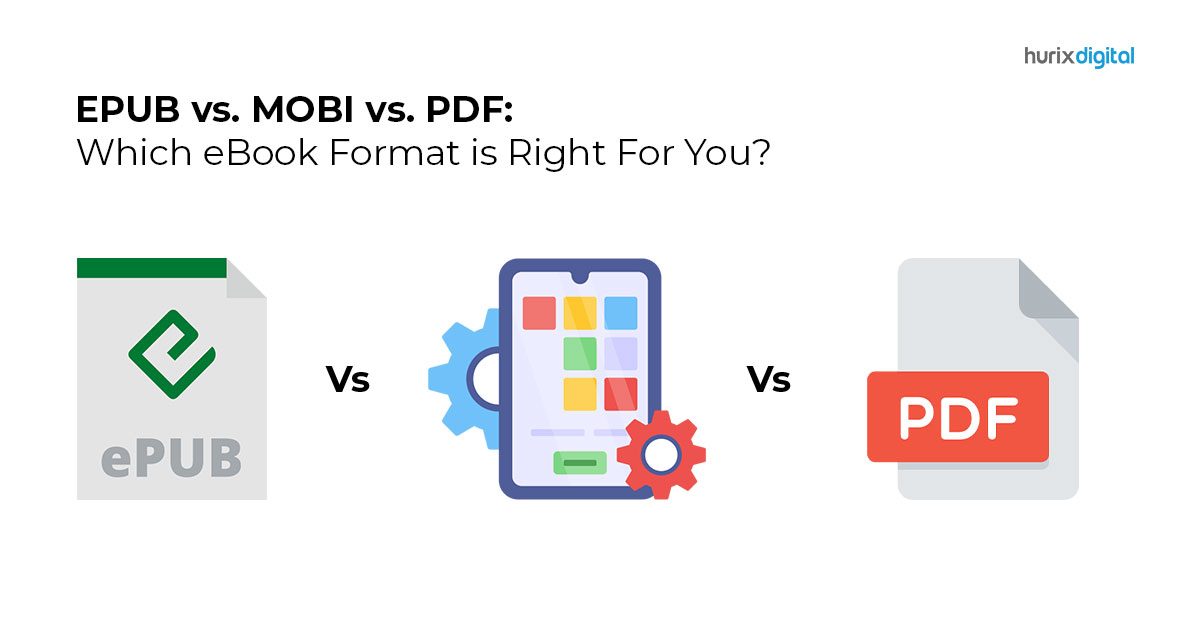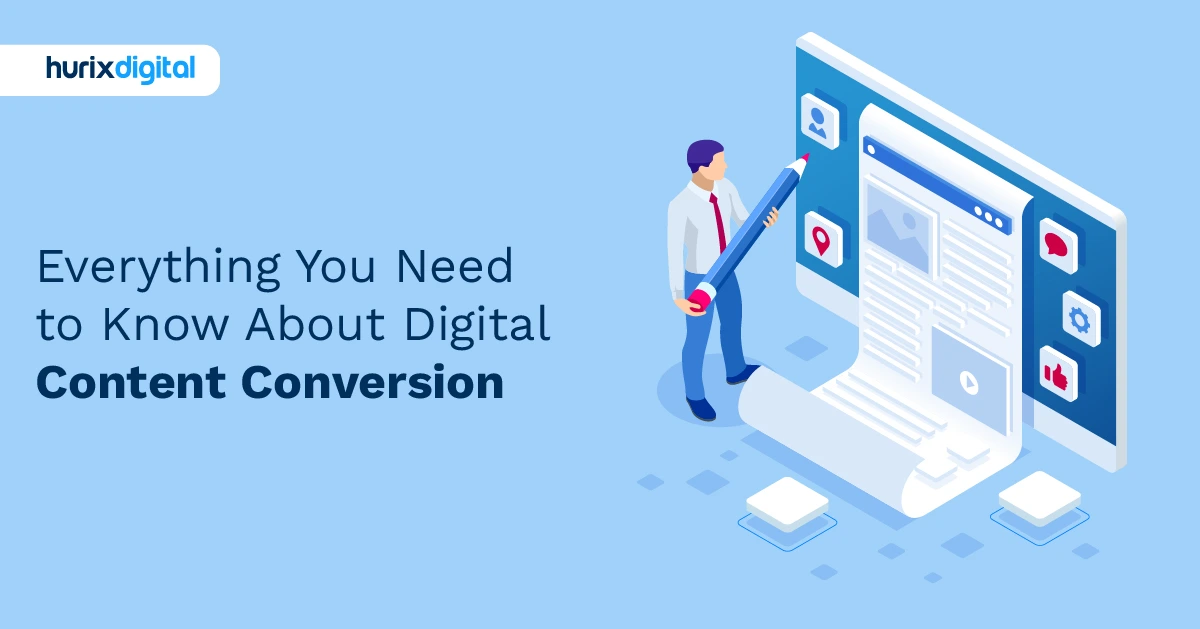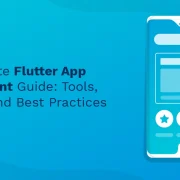
ePUB Vs. Mobi – All You Need to Know
Since the advent of digital publishing, technology has played a great role in determining the success or failure of an eBook. Right from formatting and editing to accessing and distributing, technology has transformed the way eBooks are created and circulated across the globe.
No more do authors, marketers, publishers, and enthusiasts have to rely on the age-old tradition of dealing with voluminous, paperback, textual editions. Instead, they have now been exposed to a host of digital publishing platforms which offer a huge variety of features and formats – just with the click of a single button.
Two such formats which have attracted a great amount of attention in recent times, primarily owing to their availability, efficiency, resourcefulness & ease, are – ePUB and Mobi.
Table of Contents
What is ePUB?
ePUB stands for electronic publication. It is an open standard, CSS/HTML-based publishing format created by the International Digital Publishing Forum (IDPF). ePUB, being universally accepted, fulfills all industry standards and therefore, faces no issues of compatibility. It works equally well on almost all applications and devices, such as Apple iBooks, Aldiko, Google Play, Sony e-reader, Kobo, Nook, and Adobe Digital Editions.
What is Mobi?
Mobi, on the other hand, is an acronym for Mobipocket – the original developer of this format. Based on the XHTML standard, Mobi is currently owned by Amazon under an order of exclusivity. This means that Mobi files can only be read by people having Amazon accounts linked to their Kindle devices. Furthermore, Mobi has now diversified into several other, updated versions like AZW, which are both DRM protected and Javascript enabled.
Both of these formats have great usage, scope, and potential, which has triggered a massive rivalry between ePUB vs. Mobi. As a publisher, if you too are troubled by the question of whether to choose ePUB or Mobi, here is a brief comparison of advantages and disadvantages that will help you make an informed choice.
Also Read: The Future of ePub: What Authors and Publishers Need to Know
Pros and Cons of ePUB and Mobi
1. Reflowable Text
In the context of ePUB vs. Mobi, the first advantage that ePUB has over Mobi is that it supports automatic reflowable text. This essentially implies that no matter which device or screen you read an ePUB file on – its text will make automatic adjustments.
As a result, it will become easy for readers to attune their eyes to the final book display. In fact, having reflowable text will also ensure that the typefaces, fonts, colors, designs, illustrations, and footnotes across the length and breadth of your book remain consistent and uniform.
2. Graphics and Multimedia
The way graphics and multimedia files can be embedded in both formats has also become a major point of contention between ePUB and Mobi. ePUB, being HTML-based, can easily be modified to embed elements like video, audio, images, animation, and hypertext within its multiple layers.
Mobi does not allow this facility in any of its devices. On the contrary, Mobi limits the quality, display, and size of the overall image and turns it into a standard picture, thus making its textual content extremely simple and plain.
3. Vendor Dependence
ePUB files, by and large, are entirely vendor-independent. This means that they can be accessed and read on virtually any e-reader except Kindle. ePUB files can also be read on various devices, including PC, MAC, tablets, or even smartphones. However, this is not the case with Mobi. Mobi, at present, is exclusive to Amazon.
That is to say that Mobi files can only be read on Kindle devices. Therefore, the difference between ePUB vs. Mobi is that ePUB includes everything minus Amazon, whereas Mobi includes only Amazon.
4. Safety and Accessibility
Last but not least, the two major factors that can redefine the battle between ePUB and Mobi are safety & accessibility. These factors primarily pertain to the following distinctions:
- Accessibility – ePUB files, being an open standard, are easily accessible by readers and publishers worldwide. They are well-curated and freely available to anyone and everyone who wants to read them. Nevertheless, it is not the same with Mobi files. Mobi files are not an open standard and are thus, accessible only via predetermined channels.
- Safety – As compared to ePUB files, Mobi (now AZW) files have a greater safety network. This is because Mobi files are secured under the Digital Rights Management (DRM) framework, which offers a good amount of protection for eBooks against hassles like copyright infringement, unauthorized accounts, and third-party leaks.
Both of these features don’t just help determine which choice you should make between ePUB and Mobi, but they also ascertain whether or not you should opt for one over another.
Also Read: 6 Ways to Make Your Business Grow with Accessibility
The Final Verdict
Although it is quite true that ePUB, with all its aforementioned advantages, holds a greater edge over Mobi. However, when it comes to making the most appropriate choice for your book, everything boils down to just three simple questions –
- What really is the intended purpose of publishing your book?
- Who is your target audience, and on what device are they likely to read your book?
- Which marketplace are you planning to launch, promote and sell your book?
Based on the answers to these questions, you – as a publisher, can take a call between ePUB and Mobi. For instance, if your book caters to people from all sections and sectors of life, ePUB, which is accepted by almost all publishing platforms and can be read by virtually every e-reader, will prove to be a good choice for you.
But, if your book has been particularly written for specialized groups in different countries, Mobi would be a better option. Similarly, if you intend to sell your book exclusively on Amazon, Mobi will offer a smarter network.
If you want to access other, more universal marketplaces like Apple or Google Play, ePUB would present an easier way out. Nevertheless, the alternative you finally choose in the ceaseless war between ePUB vs. Mobi should always remain thoroughly researched, well-considered, and very specific to your publishing aims, objectives, and needs.
Get in touch with us today!

Vice President – Content Transformation at HurixDigital, based in Chennai. With nearly 20 years in digital content, he leads large-scale transformation and accessibility initiatives. A frequent presenter (e.g., London Book Fair 2025), Gokulnath drives AI-powered publishing solutions and inclusive content strategies for global clients








